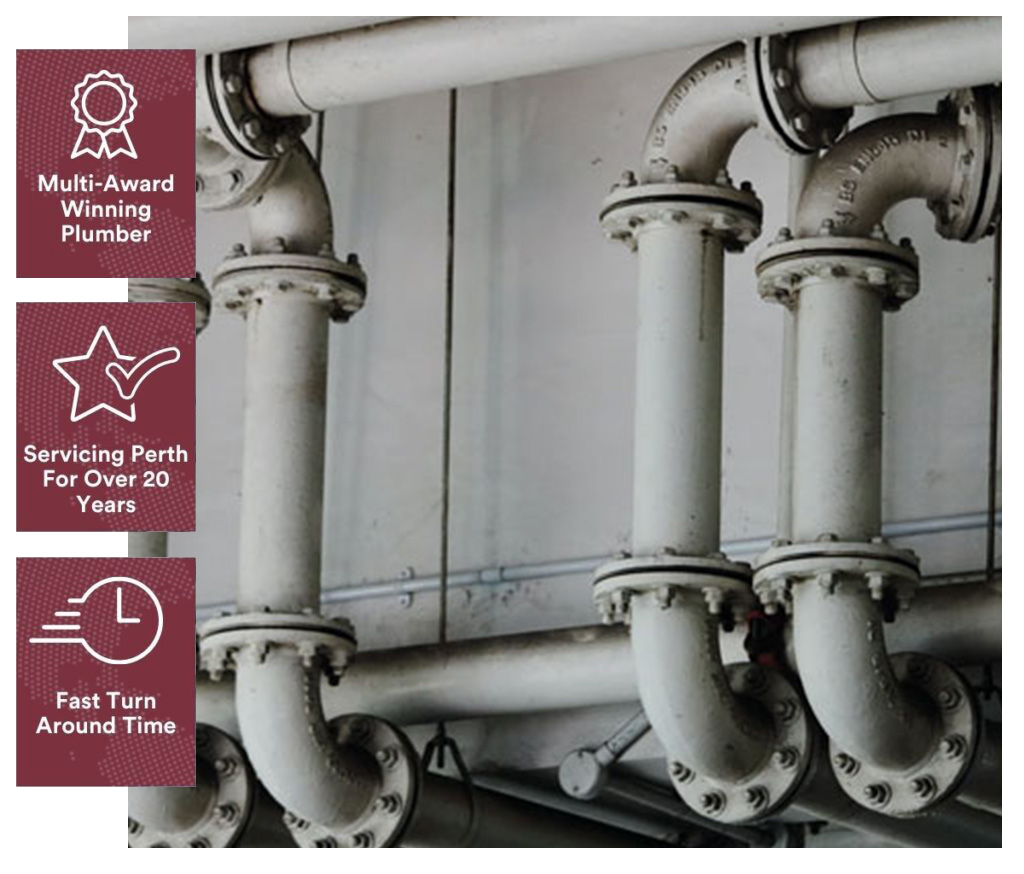
Fast and efficient wastewater pipe unblocking
Sewer blockage and wastewater pipe blockages are big problems for Perth residents. If you’re not careful, these issues can cause significant damage to your home or commercial property.
The good news is that at Rowson’s Plumbing Services, we have the experience and training necessary to fix any sewer blockage or wastewater problem in no time! Our technicians will be at your home or commercial property when you need us most, ready to get the job done right away.
What causes a sewer blockage?
Why Choose Rowson's Plumbing Services?
You can trust Rowson’s Plumbing Services to provide the best solution for your home or commercial property needs. We are a locally owned and operated company that has been in business since 1998.

FAQs about sewer blockage
What is a sewer blockage?
A “sewer blockage” is a blockage in a sewage pipe that causes sewage backup. They occur whenever something on the inside of the pipe prevents the pipe from performing its intended function.
If a sewer line becomes clogged on your property, you are responsible for clearing it. You should seek the assistance of a local plumber.
Chokes in a septic system can appear as slow-draining sinks, overflowing trap gullies, or strange gurgling noises coming from pipes. The water in your toilet bowl occasionally backs up and refuses to drain, indicating a sewer blockage problem.
How much does it cost to fix a sewer blockage?
There is no standard for fixing sewer blockage since every situation and every case is different. A licensed plumber usually has to consider the severity of the problem, the type of property, and the location before coming up with proper estimates. In a few cases, our plumbers responded to a sewer blockage issue and found that the problem went even deeper into the sewer lines; in other cases, it was just a case of a small obstruction. That said, expect that the cost would be higher than for other plumbing issues since a sewer blockage involves black water.
It is best to call our friendly team for a proper inspection and well-informed estimates.
Should I DIY a sewer blockage?
No. Even though a sewer blockage is the property owner’s responsibility, it is never a good idea to handle any plumbing job yourself. A sewer blockage involves waste water and a very aggressive smell. Unless you are a licensed plumber, doing it yourself will come with consequences, not just for your property but the whole neighbourhood.
Waste water or black water can contaminate service lines, which would render the whole neighbourhood’s water unsafe. It is best to leave the handling of plumbing issues to licensed and skilled plumbers.
When should I call a plumber to fix a sewer blockage?
When you suspect a sewer blockage or any problem in the sewer pipe networks, it is best to contact our skilled plumbers right away. It is not a good idea to wait and see if the problem goes away on its own. Get yourself some peace of mind, and let us solve the issue right away.
How to prevent future sewer blockage?
Keep your private wastewater pipes and sewer laterals in good working order. Any cracks, deterioration, or filling with tree roots in a lateral will allow groundwater to seep in, carrying sediments that will cause a sewer blockage.
Grease should be disposed of properly. It is not recommended to pour cooking oil or grease down the drain. As soon as it cools down, it will solidify, clogging either the drain or the main sewer system.
Paper products should be disposed of properly. Cloth diapers, paper towels, disposable nappies, disposable wipes, and feminine products are all items that are nearly impossible to decompose and can clog the line. Relatively, in the business of toilet paper, a large amount of biodegradable toilet paper can still clump up and cause sewer blockage.
Consider the case of plastic pipe. Plastic pipe is impervious to tree roots, resulting in a more reliable line.
Rectify any faulty plumbing connections. Depending on where you live, it may be illegal to connect French drains, sump pumps, and other flood control systems to your sewer system. While these illegal connections do not interfere with common drainage systems, they can cause debris and silt to clog your line.
Consider the installation of a backwater prevention valve. A backwater valve is a device installed on the sewer line that allows sewage to flow out but not back in. When properly installed and maintained, it can serve as the final line of defence to prevent sewer overflow backing up into homes.







